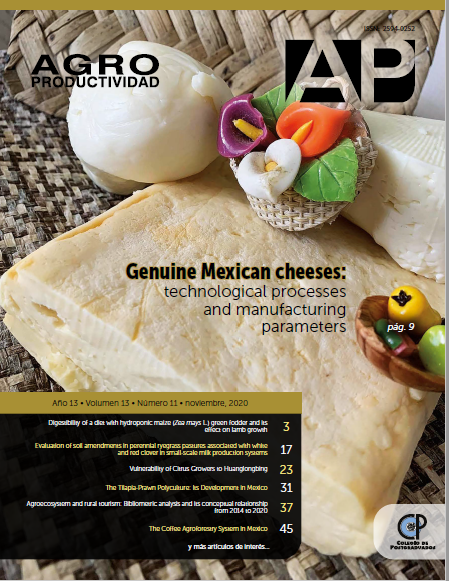TROPICAL AGROECOSYSTEMS GRADUATE PROGRAM: FACING THE 21ST CENTURY CHALLENGES OF MEXICAN AGRICULTURE
Main Article Content
Keywords
graduate program social relevance, institutional impact, Mexican agriculture, scientific contributions, systems approach.
Abstract
Objective: Analyze the contemporary scientific contributions of the Masters and Doctorate Graduate Program in Tropical Agroecosystems (PTA) taught at the Colegio de Postgraduados, Campus Veracruz, facing the current challenges of Mexican agriculture.
Design/methodology/approach: A bibliographic search was carried out in SCOPUS and Web of Science, on papers (N = 92) published during 2014-2019 by PTA research-professors. A textual analysis was carried out using Nvivo Software to identify the scientific contributions, based on problematic categories suggested by FAO for Mexico.
Results: Scientific contributions are more prolific in relation to the increment of agricultural productivity (66 %), to a lesser extent in sustainable practices (14.9 %), articulation of public policies (10.6%), and initiating in adaptation and mitigation of climate risks (8.5 %).
Limitations of the study/implications: Findings excluded publications not indexed in SCOPUS or Web of Science or out of the analyzed period.
Findings/conclusions: The PTA shows social relevance in the generation of knowledge, with scientific contributions to the current challenges of Mexican agriculture. However, they have mainly focused on increasing agricultural productivity; this does not allow the achievement of the challenges of the PTA towards research processes aimed at trans discipline. This suggests a new research role that approach disciplinary interfaces.

